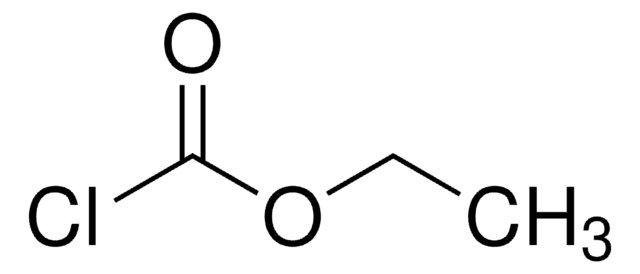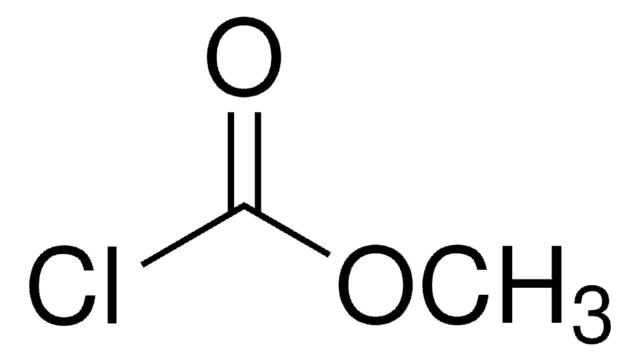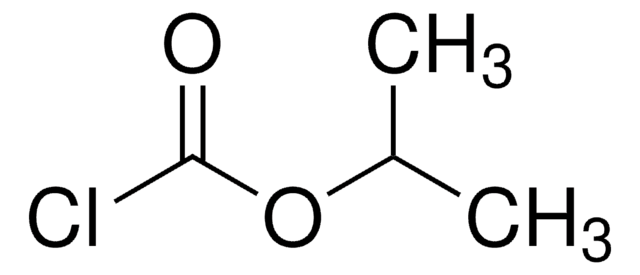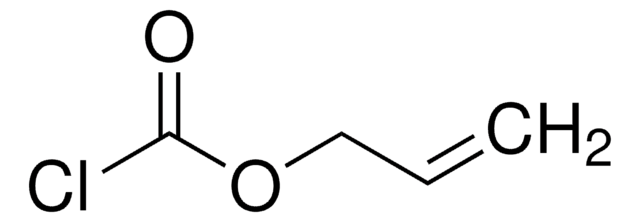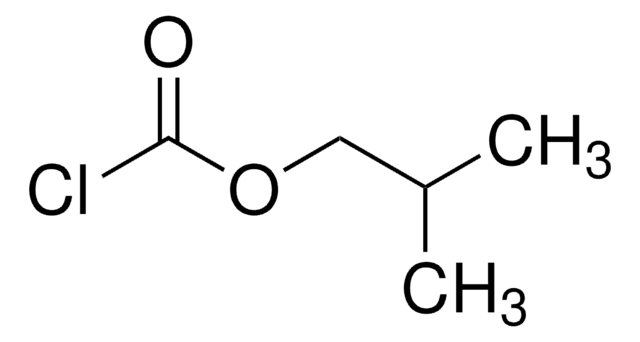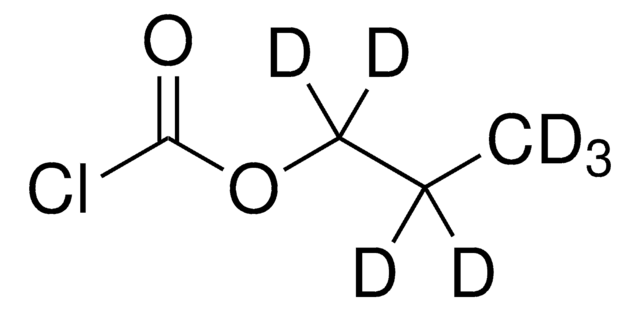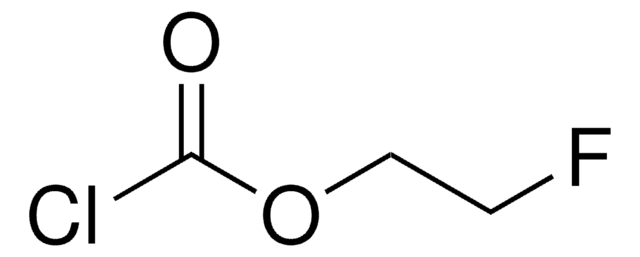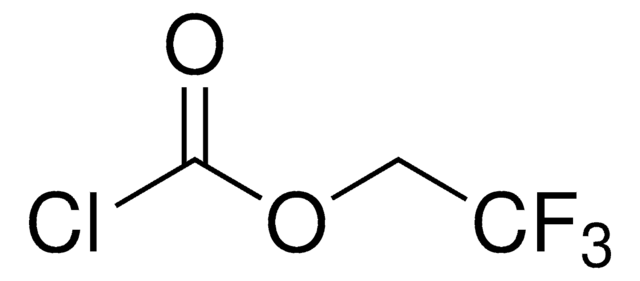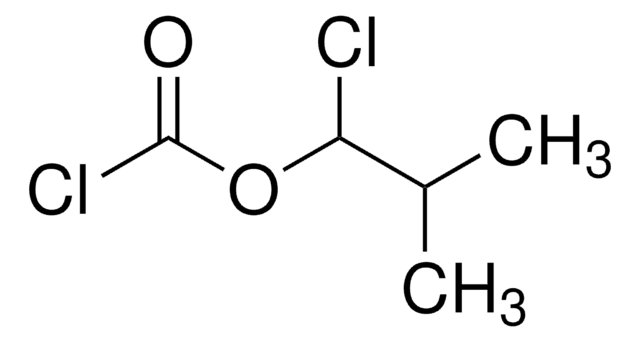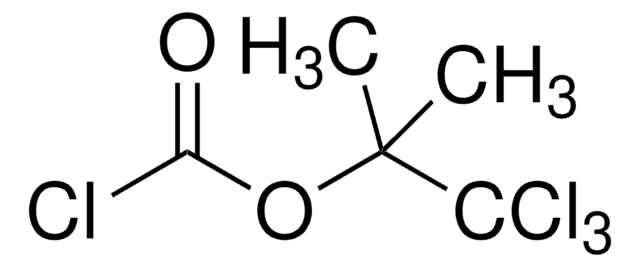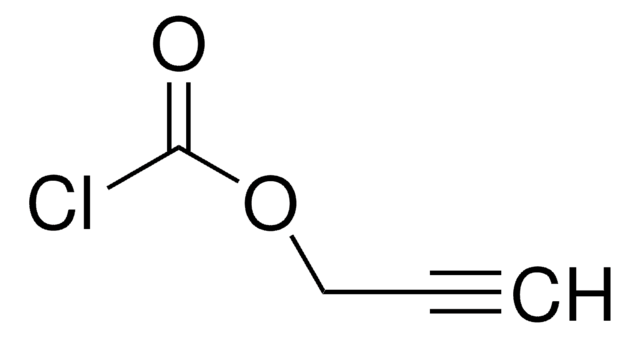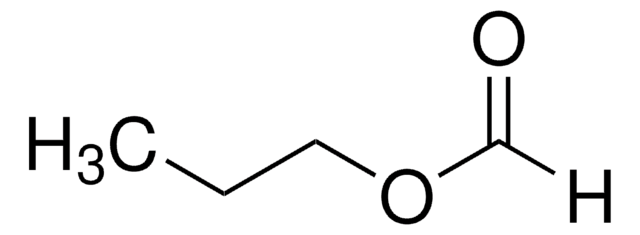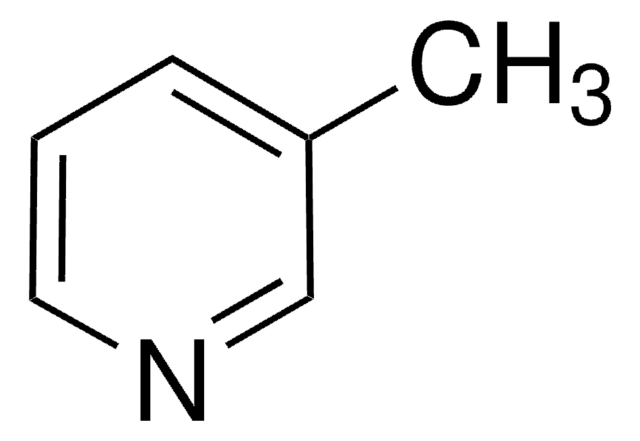249467
Propylchlorformiat
98%
About This Item
Empfohlene Produkte
Dampfdruck
0.87 psi ( 20 °C)
Assay
98%
Form
liquid
Brechungsindex
n20/D 1.404 (lit.)
bp
105-106 °C (lit.)
Löslichkeit
benzene: miscible(lit.)
chloroform: miscible(lit.)
diethyl ether: miscible(lit.)
Dichte
1.09 g/mL at 25 °C (lit.)
Lagertemp.
2-8°C
SMILES String
CCCOC(Cl)=O
InChI
1S/C4H7ClO2/c1-2-3-7-4(5)6/h2-3H2,1H3
InChIKey
QQKDTTWZXHEGAQ-UHFFFAOYSA-N
Anwendung
- as derivatization reagent in quantification of dopamine, serotonin and norepinephrine in human urine by solid phase microextraction-gas chromatography-triple quadrupole mass spectrometry
- in the preparation of dipropyl 3,6-diphenyl-1,2-dihydro-1,2,4,5-tetrazine-1,2-dicarboxylate
Signalwort
Danger
H-Sätze
Gefahreneinstufungen
Acute Tox. 3 Inhalation - Acute Tox. 4 Oral - Eye Dam. 1 - Flam. Liq. 2 - Skin Corr. 1B
Lagerklassenschlüssel
3 - Flammable liquids
WGK
WGK 1
Flammpunkt (°F)
71.6 °F
Flammpunkt (°C)
22 °C
Persönliche Schutzausrüstung
Faceshields, Gloves, Goggles, type ABEK (EN14387) respirator filter
Hier finden Sie alle aktuellen Versionen:
Besitzen Sie dieses Produkt bereits?
In der Dokumentenbibliothek finden Sie die Dokumentation zu den Produkten, die Sie kürzlich erworben haben.
Kunden haben sich ebenfalls angesehen
Unser Team von Wissenschaftlern verfügt über Erfahrung in allen Forschungsbereichen einschließlich Life Science, Materialwissenschaften, chemischer Synthese, Chromatographie, Analytik und vielen mehr..
Setzen Sie sich mit dem technischen Dienst in Verbindung.